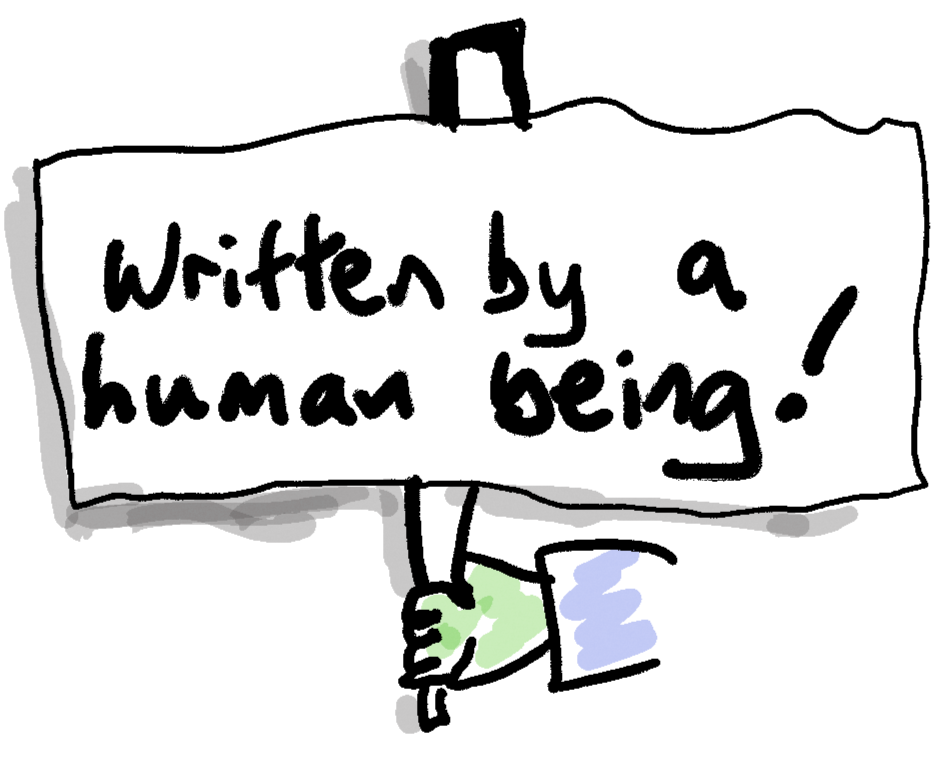On this page…
A writer
Some information: what is creative writing using constraints?
What is writing with constraints? In a nutshell, it means writing according to specific and tight rules. The “official” name for this is Oulipo, which is a French acronym for Ouvroir de littérature potentielle. This is roughly translated as Workshop of Potential Literature. Note that term “potential” literature. You don’t have to write a whole work (though some have), but adopting constraints is a good way of saying, in effect, “Here’s an experiment I tried. Might there be any mileage in taking it further? Or can I use it to kick-start a piece of creative writing?”
The Oulipo is a writing movement that uses constraints in order to enhance creativity and generate new writing. The standard advice for writers who are feeling uninspired or blocked is to allow your mind to wander where it will or to just start writing aimlessly to see what happens. Therefore to suggest the opposite approach, that of imposing some constraints on your thinking, seems completely counterintuitive.
However, this is precisely the strategy advocated by members and followers of the Oulipo.
Here are a few writing prompts based on, or in the spirit of, Oulipo techniques. In each case I’ve given an example of my own response to the prompt.
What I’ve found from doing this is that it makes you think very hard about what words to use, and how to use them. It has certainly flexed my writing muscles!
For more information on the Oulipo, see my review of The Penguin Book of Oulipo. And why not sign up to a short introductory course I’m running? It’s called Creative Writing Using Constraints and is a very brief (one day) introduction to some useful and interesting writing techniques. Details here: Creative Writing Using Constraints. It’s very educational and great fun. Later on this page I’ve included feedback I’ve received from previous courses I’ve run, and if you want more then you can look here: Course testimonials.
Prompt 1: Write an article as an acrostic
An acrostic is a piece of writing in which letters or words in particular positions form a word or a sentence. In the following article I’ve hidden the name of a short story writer I really didn’t like much. Can you discern the name of the author?
In the summer of 2019 I signed up for another round of short story courses at the City Lit. Science fiction stories are all very well, but there is a whole world “out there”. And frankly, I was starting to feel that I was missing out. Knowing there is so much more to read is a great incentive to retain as many marbles as I can, for as long as I can — but….
Did I ever mention that the word “short” seems to have a different meaning to different writers? In some cases, it means six words, while in others it can mean a hundred or more pages. Now, I love reading as much as the next person, but be reasonable! Each time I picked up one of the stories, I had to start again because it was so convoluted. So my misery was made even worse.
Eventually, I reached the end and breathed a huge sigh of relief. “Now for the next one on the list — thank goodness.”, I said to my wife as I replaced the book on its shelf.
Can you identify the writer?
Prompt 2: Write an article of exactly 49 words
Why 49? Why not? One magazine I write reviews for imposes a word limit of 150. The lower the limit, the harder it is to write a good review.
Climate Change for Dummies is a welcome change from the ranting we hear from people who glue themselves to motorways. It’s reasonably balanced and scientifically sound. However, in the authors’ enthusiasm to encourage us to “go green”, they forget to mention all relevant facts, and our desire for comfort.
Prompt 3: Write a review without using the letter ‘A’
The technique of omitting a letter is known as a lipogram.
This book is not only scientifically sound, it presents different points of view. It is, however, optimistic in its hope for our much needed lifestyle revolution.
Prompt 4: Write an article in the form of a tautogram
This is the technique in which every word starts with the same letter:
Almost any author advocates ambling around an arboretum.
I just made that up, and I wouldn’t suggest it’s a great piece of literature. However, I now have in my head an image of a writer walking around an arboretum, alone amongst the trees, jotting down ideas in a notebook with the pencil he always carries with him.Will those notes form the basis of a story? Or will the act of walking around itself lead to a story? For example, will he come across a hidden cave, will he get lost, will he trip over a fallen branch and break his leg? So many possibilities, none of which I’d thought of before I had a go at writing a snippet of text using the tautogram technique.
Prompt 5: The N + x technique
Alternatively, applying an Oulipo technique to an existing piece of writing is a good way of revealing hitherto hidden possibilities.
For example, here is a line of text from a short story by Nathaniel Hawthorne:
The people smiled mysteriously in the streets and threw bold glances at their oppressors
Here’s that line transformed by changing each noun to the tenth one further on in the dictionary:
The percussionist smiled mysteriously in the strikes and threw bomber glimmers at their orators
I think I have a seed of a nonsense story or poem (it sounds vaguely Jabberwockyish to me) or a science fiction story. What are “bomber glimmers” for instance? Some new, terrible weapon?
An interesting aspect of this approach is that Oulipo techniques are supposed to be objective. However, it is clear that the results of this “N+10” approach will depend on which dictionary I choose to use. Therefore there is a certain degree of subjectivity in play.
One of the things I’m going to try in my class on the subject (see below) is to ask everyone to process a piece of text using their own dictionary, and then compare versions. It should be very interesting!
Prompt 6: Perverbs
Another approach is to use “preverbs”. These are a mash-up of existing proverbs to provide a new one. For example:
Don't count your chickens to spite your face
or
Don't cut off your nose before it gets dark
Each of these offers intriguing possibilities.
Prompt 7: Rewrite a short piece in the form of different styles
Finally, a great Oulipo technique is to take a simple story and rewrite it in a different genre, or a different tense. One of the founders of the Oulipo, Raymond Queneau, did this in his book Exercises in Style.
For example, this is an excerpt from his basic story or template, which he called Notation:
Notation
On the S bus, in the rush hour. A chap of about twenty six, soft hat with a cord instead of a ribbon, neck too long, as if someone’s been tugging at it. People getting off.
Now here is the same extract in the form of metaphors:
Metaphorically
At the very heart of the day, tossed among the shoal of travelling sardines in a white-bellied beetle, a chicken with a long, featherless neck suddenly harangued one of their number, a peace-abiding one, and its parlance, moist with protest, was unleashed into the air.
And here is an official letter version:
Official Letter
I beg to advise you of the following facts of which I happened to be the equally impartial and horrified witness.
Today, at roughly twelve noon, I was present on the platform of a bus which was proceeding up the rue de Courcelles in the direction of the Place Champerret. The aforementioned bus was fully laden- more than fully laden, I might even venture to say, since the conductor had accepted an overload of several candidates, without valid reason and actuated by an exaggerated kindness of heart which caused him to exceed the regulations and which, consequently, bordered on indulgence.
As you can see, doing this is a great way of honing your creative writing muscles. I tried it myself. I wrote a short piece (nonfiction), and since then have been rewriting it in various ways. Here’s the basic story:
A Bang on the Head
In the middle of the night, I woke up (if you can call being semi-conscious being awake), walked purposefully towards the door to go to the bathroom — and almost knocked myself out.
The reason was that in the twin states of entire darkness and semi-somnambulance I was facing in a different direction from the one I thought I was facing. As a result, instead of walking through the door, I tried to walk through the wall.
The next few days brought nausea and headaches. After much prevarication I went to Accident and Emergency, where I waited petrified among people for whom “social distancing” means not quite touching you, and who wore their masks as a chin-warmer.
An hour and a half later I emerged into the twilight, secure in the knowledge that I had nothing more serious than mild concussion. I failed to do much writing, but I was pleased to have read a further 17% of my book.
And here’s a version of it in the form of a newspaper report:
I’m not a head-banger, claims man who banged his head
Last night, for no apparent reason, Terry Freedman, a resident of Ilford, Essex, banged his head in the middle of the night.
"I was on my way to the bathroom, when all of a sudden I banged my head on the wall. I thought it was the door."
A neighbour, who wished to remain anonymous, told us, "I don't understand it. They are such a nice couple, and he has never done anything like this before. His wife must be in bits."
A spokesperson for the hospital he visited said there was no lasting damage.
"The only real damage", said Freedman, "is to my ego. I feel such an idiot! Still, at least I managed to read quite a bit while I was waiting. Mind you, I was rather worried because people weren't wearing masks or obeying social distancing rules."
There are more examples in my Substack newsletter: Experiments in Styles.
Conclusion
I do not pretend that any of these pieces will set the literary world alight. They were, however, very useful for me as a writer to ‘force’ me to think carefully about each word and sentence.
Once again, here are the details of the course I’m running:
Creative Writing Using Constraints
Feedback from previous courses
Feedback from a 60 Minute Writer course
The course was excellent. Terry created a safe space for us to share our writing. I felt he managed to pack a lot in such a short course and I have learnt a lot from it. I wish the course was longer and I would love to have continued studying with Terry. I hope he will be back on schedule soon!
The quality of Terry's teaching, resources, feedback and suggested reading exceeded my already high expectations for the course. I thoroughly enjoyed every session, was grateful for the encouragement to work on my writing between sessions, and was delighted and impressed to have received constructive and helpful feedback on every piece I submitted.
Supportive and encouraging. Terry held a safe space making it easy to share creative writing. I appreciated his feedback.
Such wonderful dedication and personal attention.
Feedback from Writing with constraints course
Thanks for everything Terry, a truly enjoyable day
Terry, thank you for a learning experience which surpassed my already-high expectations! The course was superb: the atmosphere in the classroom was welcoming and friendly, the resources were excellent, and although in advance of the course I had felt nervous about the prospects of both working in collaboration with other students and sharing my own thoughts and work, these in fact proved to be the aspects of the course which I enjoyed the most! I felt supported throughout, and learned a great deal about writing with constraints. I'm looking forward to putting what I learned into practice in my own writing projects. I can't wait to take another course with you - thank you, Terry!
Friendly, knowledgeable
Feedback from a course called Writing the Oulipo
I loved this taster course, and it was enjoyable, inspiring and entertaining! A great course to remove any writing anxieties and just have fun with words, and interesting twists of probability!
Terry Freedman is a masterpiece. He delivered one of the best courthouses I have been a stuffing on. An engaging roof through workaday with a bit of matricide thrown in. More stump from the wobbler please!
Terry was fantastic! So glad I took the course and look forward to others with him.
I joined this course out of sheer curiosity - intrigued about the mystery and eccentricity of Oulipo after I searched for the term online. This course was a delight, and it was so much fun creating ideas and pieces of writing using lots of different techniques, games and twists of probability! I found it a bit like collage or assemblage with words.
It would be a wonderful course for a writer of any level, to explore how play and experimentation can help you to have words running off the page with minimal anxiety – even if you are nervous about blank pages and where to begin!
I actually think the course would be great for creatives of all disciplines because it inspires concepts, titles and much more.
Our tutor was wonderful, and very knowledgeable, with a clear passion for the technique. I feel everyone had a chance to engage, share work and ask ample questions!
A lot of peer inspiration was shared too, and I loved learning from other students. I’d had quite a stressful week before this course, but within no time I was feeling inspired and having a lot of fun! I had a great, entertaining morning, and in fact I was so motivated I used the technique to create some of my own work after the course itself. I would simply ask for more Oulipo as a longer course - virtual please! Thank you.
My next Creative Writing using Conbstraints course…
… is on 21st June 2025: Creative Writing Using Constraints





